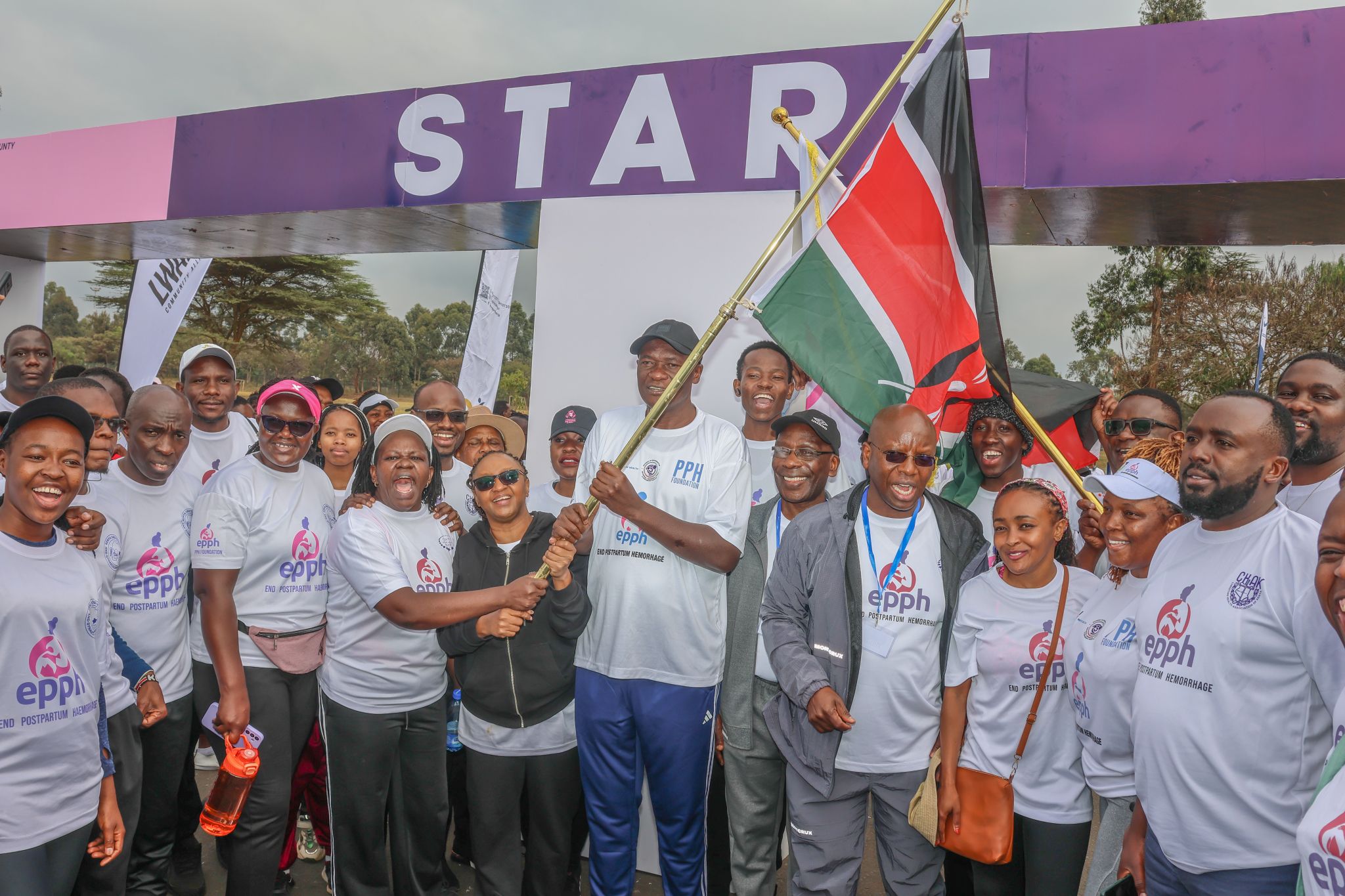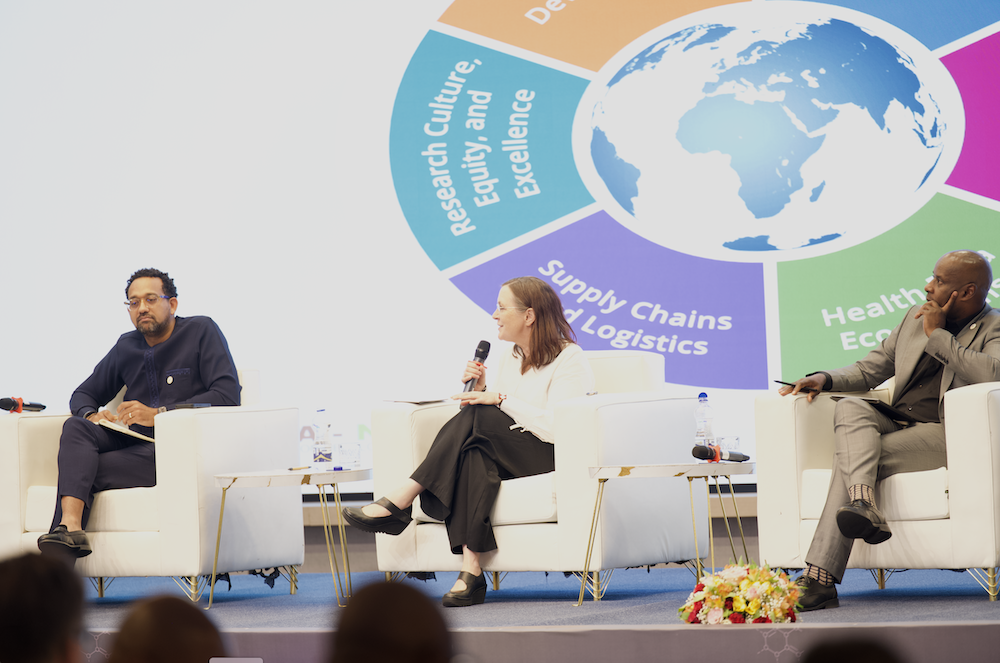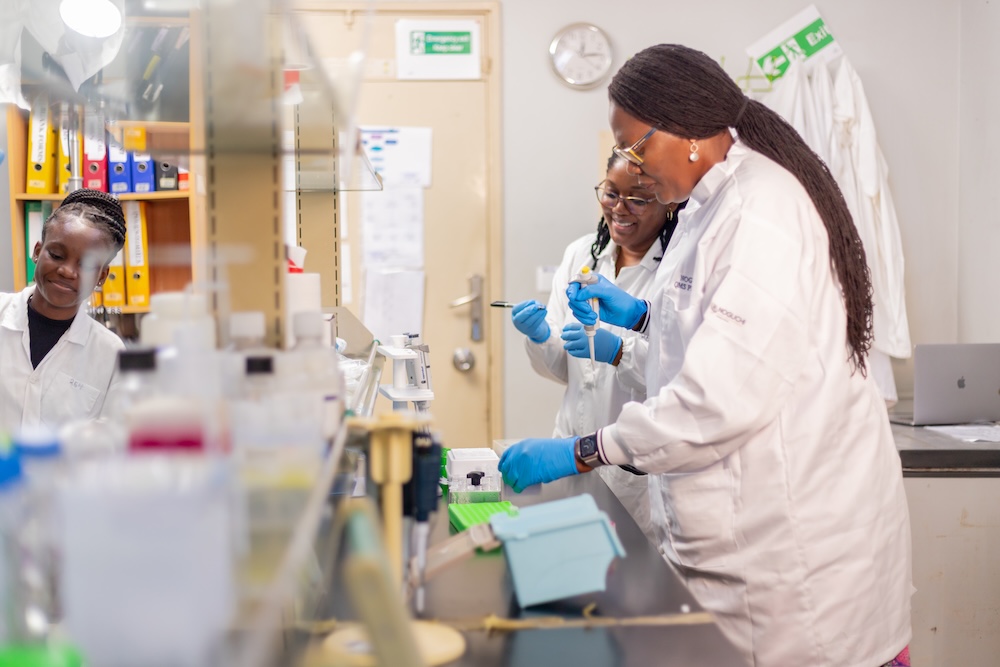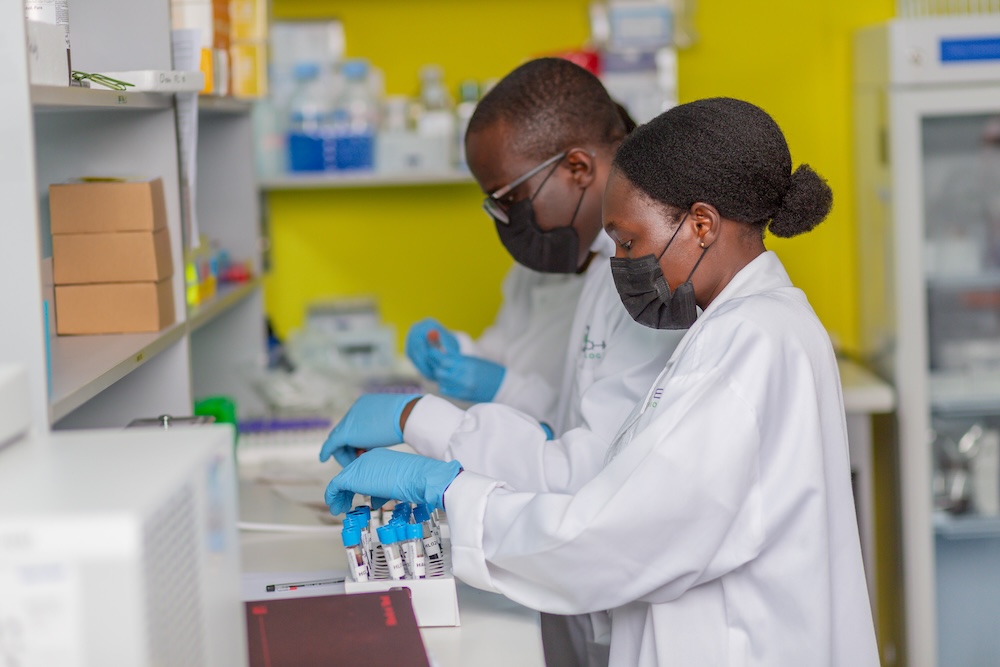
Media Centre
Africa leads global momentum to end preventable maternal deaths
Monday, September 29, 2025

Women’s health in Africa is at a turning point. With the Gates Foundation’s historic $2.5 billion commitment to neglected women’s health conditions, the fight against postpartum hemorrhage (PPH), the leading cause of maternal deaths worldwide, has gained unprecedented global momentum.
Every year, an estimated 35,000-65,000 women die from PPH, accounting for one in three maternal deaths globally. In sub-Saharan Africa, the burden is stark: the region contributes nearly two-thirds of the world’s maternal deaths, with Kenya alone losing more than 3,000 mothers annually due to these preventable complications.
The second edition of the End Postpartum Hemorrhage (PPH) Run, led by Professor Moses Obimbo and partners, takes place across seven counties in Kenya and extends to other African countries. The run that was launched in 2024 and graced by key Kenyan government figures and Olympian and athlete Faith Kipyegon seeks to raise awareness, mobilise action, and channel new investments into maternal health interventions. The run builds on growing recognition that women’s health has been underfunded for decades, leaving conditions like PPH in the shadows despite their devastating toll.
“We cannot continue to accept a reality where a mother dies every two minutes from childbirth-related causes, especially when simple, affordable, and proven interventions from timely administration of uterotonics to safe blood transfusion systems and trained midwives can save lives. Said Prof Obimbo. “The End PPH Run is a call to governments, donors, researchers, civil society, and communities to prioritise maternal health as a matter of equity and justice. With the recent historic $2.5 billion commitment by the Gates Foundation’s to neglected women’s health conditions, we have an unprecedented opportunity to ensure that no woman dies while giving life. It is time to translate global pledges into local action, close the maternal health gap, and secure a future where safe motherhood is guaranteed for every African woman,” he added.
According to the World Health Organization (WHO), Africa’s maternal mortality ratio remains at 545 deaths per 100,000 live births, far above the global target of less than 70 by 2030. Without urgent action, countries across the continent risk missing the Sustainable Development Goal (SDG) 3.1 on maternal health. This inequality reveals not only the urgency of the crisis but also the stark divide in access to lifesaving interventions between low- and high-income settings. Without intensified investment, innovation, and accountability, millions more African women risk preventable death in the years to come.
Closer to home, Kenya reflects both the progress and the gaps. National data from the Kenya Demographic and Health Survey (KDHS) shows gains in skilled birth attendance and facility deliveries, which has increased maternal service coverage. However, maternal mortality remains uneven across counties, with stalled progress in institutional mortality ratios, disparities in outcomes, and stillbirth rates that vary widely by region. Persistent challenges, from shortages in blood transfusion services and uterotonic supplies to gaps in midwife training and referral pathways, highlight why global commitments, like the Gates Foundation’s, must translate into concrete local action. This is to ensure no mother dies while giving life.
“As a country, we cannot ignore the reality that postpartum haemorrhage remains the single leading cause of maternal deaths in Kenya, claiming the lives of thousands of women every year. At KOGS, our mission is to change this by strengthening safe motherhood practices, from advancing clinical guidelines and training health workers to advocating for the availability of lifesaving commodities like uterotonics and safe blood,” said Dr Kireki Omanwa, President, Kenya Obstetrical and Gynaecological Society (KOGS).
He further stated, “We are also working hand in hand with policymakers to ensure that maternal health is not side-lined but anchored firmly within Kenya’s Universal Health Coverage agenda. For us, the fight is not only about preventing PPH but also about ensuring that every woman has access to respectful, high-quality reproductive health care, regardless of where she lives. By aligning our national efforts with global commitments such as the Gates Foundation’s $2.5 billion investment in women’s health, we can accelerate progress and finally put an end to preventable maternal deaths in Kenya and across Africa.”
The Gates Foundation’s commitment provides a unique window of opportunity. By directing resources to neglected women’s health conditions, including postpartum haemorrhage, African countries can scale proven interventions such as access to uterotonic drugs, skilled birth attendants, blood transfusion services, and community-level education.
Dr Evelyn Gitau, Chief Scientific Officer, Science for Africa Foundation (SFA Foundation), emphasised the need for prioritising continental-based research in responding to its health challenges: “Africa-led research is critical in tackling challenges like postpartum haemorrhage that continue to claim the lives of our mothers. The Science for Africa Foundation is committed to ensuring that funding, capacity, and evidence are directed towards solutions that are designed, tested, and scaled from within the continent. This is how we close the maternal health gap and secure a healthier future for African women and families.”
As Africa grapples with high maternal mortality, the End PPH Run stands as a unifying platform to connect global commitments with local realities. It is a reminder that women’s health is not just a medical issue but also a question of equity, dignity, and justice.
We invite policymakers, civil society, health workers, and communities to join the End PPH Run movement. Together, we can ensure that every birth is safe, every mother survives, and every family thrives.
Notes for Editors
About End Postpartum Haemorrhage Initiative
The End Postpartum Haemorrhage Initiative, organised by the University of Nairobi (UoN) in collaboration with the Kenya Obstetrical and Gynecological Society (KOGS) and the Midwives Association of Kenya (MAK), is a global movement aimed at preventing maternal deaths by focusing on the early detection, treatment, and management of PPH. With Professor Obimbo Moses Madadi as Team lead, the initiative seeks to educate communities, support healthcare professionals, and advocate for policy changes that will save the lives of women around the world. It seeks to reduce maternal deaths from PPH through comprehensive community and healthcare-based interventions. The initiative works closely with medical professionals to enhance early detection, timely referral, and effective management of PPH, ensuring that women receive the critical care they need before, during, and after childbirth.
About the Midwives Association of Kenya
The Midwives Association of Kenya (MAK) is dedicated to envisioning and ensuring quality midwifery care. Our mission revolves around advocating for midwifery as an autonomous profession, strengthening the midwifery profession to enhance the quality of care, and positioning midwifery as the standard for childbearing. We accomplish these objectives by promoting excellence, fostering innovation, demonstrating leadership in service delivery, and relentlessly working towards the recognition, visibility, and value of midwives.
About the Kenya Obstetrical and Gynaecological society (KOGS)
Since its foundation, Kenya Obstetrical and Gynaecological Society has acted as an advocate for the advancement of women’s sexual and reproductive rights and has more recently articulated its position on sexual and reproductive health and rights at the ongoing constitutional review process.
About the Science for Africa Foundation
The Science for Africa Foundation (SFA Foundation) is a pan-African, non-profit, and public charity organisation that supports, strengthens, and promotes science and innovation in Africa. The SFA Foundation serves the African research ecosystem by funding excellent ideas in research and innovation, enabling interdisciplinary collaborations, and building and reinforcing environments that are conducive for scientists to thrive and produce quality research that generates new, locally relevant knowledge.



